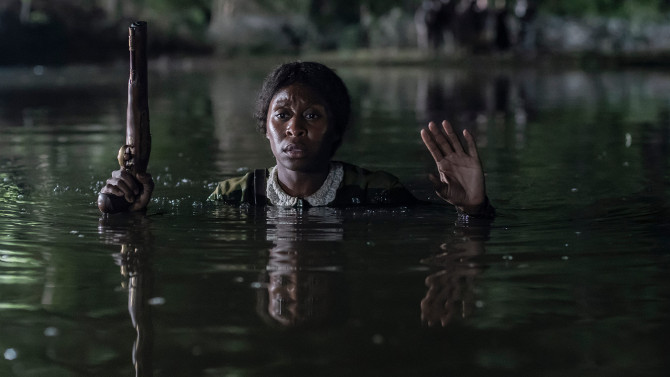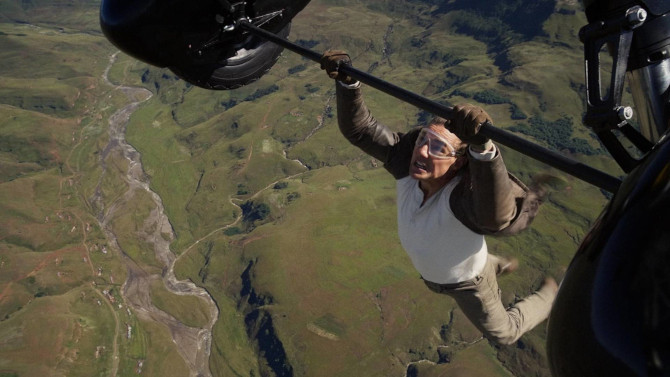
An Impossible Mission
How do you wrap up a franchise like Mission: Impossible? That is, if this even is the final installment... as they’ve made it sound (while at the same time, stars not named ‘Tom Cruise’ pipe up and suggest that might not be so). It has been twenty-nine years, with different writers and visionary directors – from twisty Brian De Palma and the action hair stylings of John Woo, to the lens flares of J.J. Abrams and animation expert Brad Bird, it was only about ten years ago that the franchise decided to opt for The Usual Suspects scribe Christopher McQuarrie for the final four. To return to that opening question once more, you could end with a Sopranos’ style cliffhanger, simply make another entertaining movie like the many before – like Everybody Loves Raymond did it with its final episode, or try to tie everything up in a neat little bow by bringing everything together as the Daniel Craig era did with James Bond. Well, it is definitely more along the lines of the latter example, with some distinct differences.
-
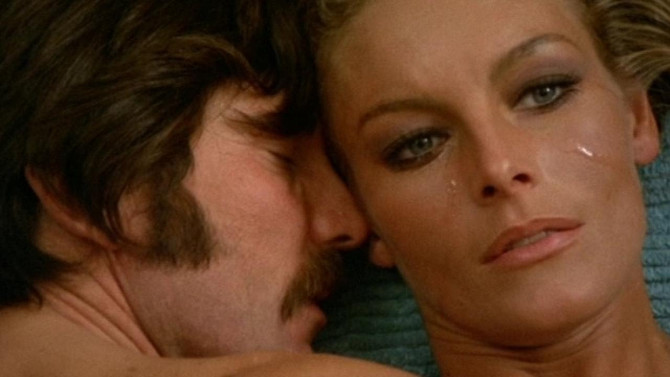
On His Venetian’s Secret Service
Who Saw Her Die?February 13, 2020Like a copycat killer, it is somehow unusual and rather suspicious that anytime a good film idea hits production, it seems like there is another similar project coming down the pipeline. . . sometimes referred to as ‘twin films’, countless examples exist – White House Down and Olympus Has Fallen, Hitchcock and The Girl, The Prestige and The Illusionist, Friends With Benefits and No Strings Attached, Darkest Hour and Churchill, The Descent and The Cave (anyways, you get the idea). Another intriguing example finds the horror classic Don’t Look Now having a doppelganger in the 1972 Aldo Lado directed giallo Who Saw Her Die? – though don’t jump to conclusions as to which one is the knock-off. Released a year prior to the 1973 feature, Who Saw Her Die? also finds itself set in the eerily beautiful city of Venice, where a couple is dealing with the death of their child. With numerous similarities, like a water-set funeral and an intimate sex scene, and though the set up and settings are similar, in many ways, they are separate entities.
-

Get Your Motor Running
Ford v FerrariFebruary 8, 2020Pairing up two of the most iconic actors of this generation. . . no, I am not talking about Leonardo DiCaprio and Brad Pitt. . . Matt Damon and Christian Bale work together for the first time in the 2019 Best Picture nominee Ford v Ferrari, directed by James Mangold (Logan; Walk the Line). An historical event that I’ve somehow never heard of before, this ‘based on a true story’ tale is set in 1966, and the times, they are a changing. A little over twenty years after the end of World War 2, a whole new generation was born when the soldiers returned home in 1945. . . these now teenagers/early 20 somethings (with more money than any other grouping that came before), are yearning for a new type of car (not their father’s automobile).
-
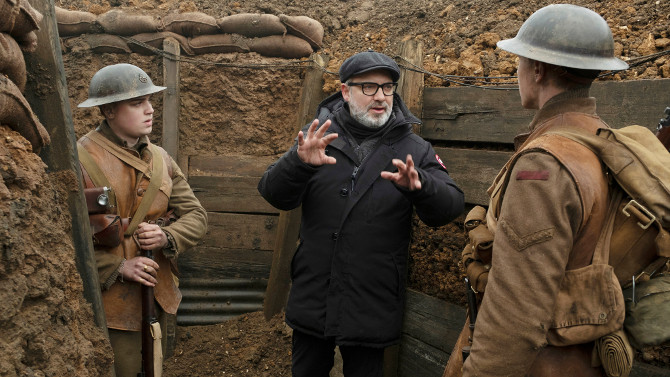
Oscar Predictions 2020
February 6, 2020Predicted winners, who should win, and my favourites from this year's Oscars (the 92nd Academy Awards). Catch up on all the buzz before the big event.
-
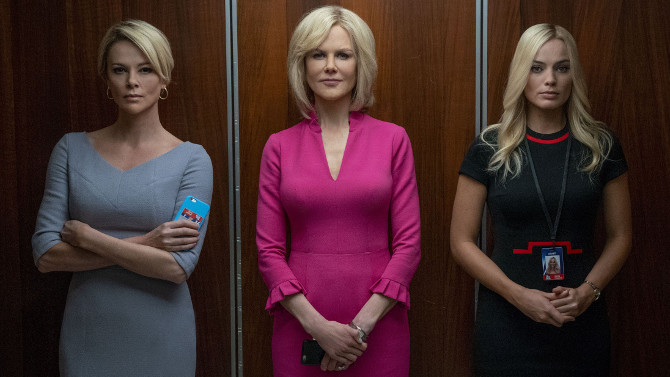
An Explosive Story
BombshellFebruary 4, 2020There are always a few films every year that seem to tap into the present zeitgeist (a window into prevailing spirit and mood of the time). . . one of 2019's is most definitely Bombshell, written by Charles Randolph (who won an Oscar for his Adapted Screenplay of The Big Short, along with Adam McKay), and directed by Jay Roach – who continues his seamless transition from comedy filmmaker to dramatic (this following his 2015 effort in Trumbo). Centred on three women working at Fox News in 2016, our quasi-narrator is Megyn Kelly (Charlize Theron in an Oscar nominated performance), who has just asked too liberal a question to Donald Trump at the 2016 Republican Debate (leading to backlash from its conservative viewership), newscaster Gretchen Carlson (Nicole Kidman), whose more liberal leaning slant has plateaued her career, and newbie Kayla Pospisil (Margot Robbie, also nominated for an Academy Award), who is trying to find an avenue that will get her on the air in some capacity. As you will probably recognize, Kelly and Carlson are real people, while the Pospisil character is an amalgam of many women (and not based on a specific real life person).
-
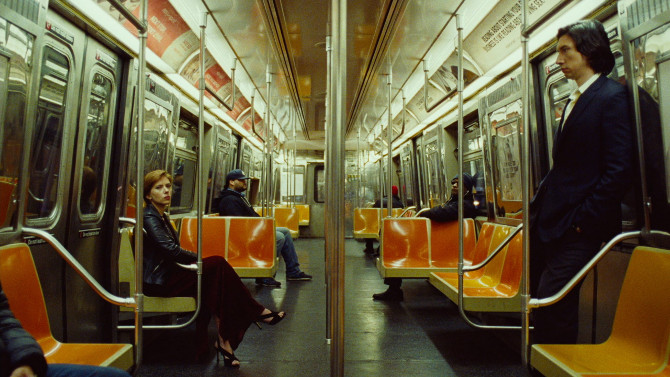
Go Your Own Way
Marriage StoryFebruary 2, 2020A guy walks into a bar; the bartender immediately recognizes that the patron is pissed off. Sliding the man a beer, he asks, “What’s ailing you?”, to which he replies, with a loud, booming voice, “ALL LAWYERS ARE ASSHOLES!!!”. There is only one other person in the establishment, someone sitting at the other end of the bar. . . his ears perking up, he immediately shouts, “I take offence to that.” Taken aback, the new patron asks, “Are you a lawyer?”, to which he concludes, “No, I’m an asshole”. All joking aside, lawyers, despite not being the main players in writer/director Noah Baumbach’s 2019 Academy Award Best Picture nominee Marriage Story, play an integral part in the piece. Following Charlie (Adam Driver) and Nicole (Scarlett Johansson), their so called marriage story is quickly becoming a separation and divorce story. Living in New York, Charlie is a renowned theatre company owner and playwright (by no means rich, but respected), his wife his actress muse. . . an edgy Hollywood teen actress that has transitioned to respected stage performer. With a young son, Henry (Azhy Robertson), their marriage has run its course. . . Nicole returning home to California (with their son) to film a pilot for a new series, Charlie must balance his hectic life, attempting to run his troupe while racking up frequent flyer miles to visit his son.
-
First Names Only, Please
 JudyHarrietJanuary 31, 2020
JudyHarrietJanuary 31, 2020The Academy Award season is creeping upon us again. . . and as I am running out of time, I’ve decided to combine and condense two reviews that feature stellar Lead Actress performances of 2019 (that also happen to be about real women), Rupert Goold’s Judy and Kasi Lemmons’ Harriet. Judy tells the tragic story of Judy Garland, flashing back and forth between the way she was mistreated during the filming of The Wizard of Oz, and how that, along with poor life choices, brings her to a point where she is forced to take an extended stay in London in 1968 (away from her children – who she dearly loves) in order to earn enough money to be able to purchase a home (so that she might win custody against her ex-husband).

